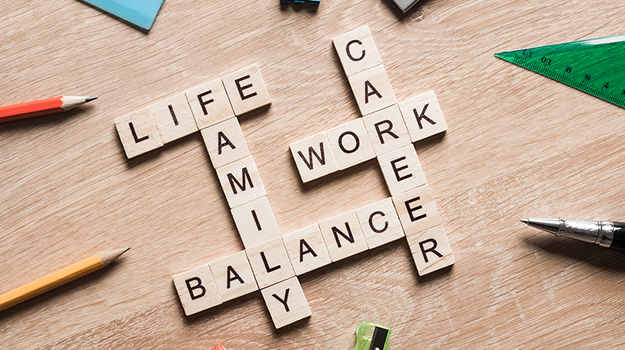The Mirror's Health , Lifestyle and Fashion

Work-life balance
The first report that l read was filed by one Michael Sainato for the United Kingdom (UK)-based Guardian newspaper on August 15. And the reference company here was AT&T, the world’s largest telecommunications company, based in the United States of America (USA).
Advertisement
The contention in this article was simple: “We can do the same job from home”. According to the reporter, Sainato, “workers are pushing to keep working from home as an option as employers force a return to the office”.
“Workers, represented by the Communications Workers of America, agreed to a work from home extension until the end of March 2023, but …. say the company is forcing many workers to return to the office much sooner than that, while other departments had already been forced back to the office by their managers”, the report said in part.
Citing James Bloch, an AT&T employee in Cleveland, Ohio, for 21 years, the report said the work-from-home option had been beneficial for workers’ mental health, protection from COVID-19, productivity, attendance and carbon footprint.
“These are extremely stressful times over the last few years and being at home has allowed us to have less distractions, giving us better one-on-one time with our customers and our clients,” said Bloch. “With AT&T technology, they’re a communication company. We have some of the best stuff out there. Let’s use it. We can do the same job from home anywhere that we could do if we were all sitting there together.”
This view of Bloch, according to the report, was shared by other workers.
Now, the workers of AT&T are not alone in thinking this way. A report filed by Kalyeena Makortoff for the Guardian newspaper on August 22 also explained how workers of Apple launched a petition over the firm’s return-to-office stance. Apple chief executive, Tim Cook, in a memo, had called for “in-person collaboration” among staff, at least three days a week from September. But the workers would rather want to collaborate in other ways, claiming that Cook’s order could stifle diversity and staff well-being by “restricting their ability to work remotely”.
“We believe that Apple should encourage, not prohibit, flexible work to build a more diverse and successful company where we can feel comfortable to ‘think different’ together,” the Financial Times of London reported, in reference to the petition.
So how did we get to this point in the first place? Well, simply put, it is because of the COVID-19 pandemic, which sent millions of workers around the globe from working in offices to working remotely. In fact, my interest in the developments involving the two companies stems from my research concentration on how the pandemic could alter work/life balance for good- the new normal effect.
In the October 31, 2020 edition of this column, for example, l wrote on the headline: Home Work and in this submission, l looked at how flexible hours of working could impact on productivity and ultimately output.
The COVID-19 pandemic has brought a number of changes to the way life is generally organised, and significant changes to the way businesses operate, workers go about their normal duties, and in the broader sense, changes to the way the wider economy is functioning.
“Well, this week, it is about another variant of the alterations that the pandemic has brought to our basic life. Here, it is about work! And, the simple question is: What about it? In the long form, it is about how COVID-19 has impacted work-life balance; thus, upon critical reflection, driving home the question: Has the shift in working pattern as a result of COVID-19 impacted productivity and output negatively, or otherwise? The interest in this question is largely driven by the fact that once there is a negative impact on productivity and output, chances are that incomes and living standards too would be affected, at least in the medium term. And you must, at least, be abreast of these possible ramifications from COVID-19”, this is what l wrote in the October 31, 2020 edition.
I didn’t have the immediate answer(s) then, but it seems that the workers of AT&T and Apple have demonstrated that productivity was not negatively affected by the shift from working in offices to remote working. In actual fact, they want more of the new normal.
In effect, the onset of the COVID-19 pandemic accelerated the need for flexible hours of working, and forced individuals and businesses to develop digital kits and skills. Meetings are currently, in most cases, organised using online platforms. It still works.
In fact, the clamour for more flexible hours of working, and broadly for workers to work from home, started many years ago. Some studies have say the global workforce has between 14 and 30 per cent workers, operating from home before the pandemic, depending on the geographic location of the company (country) and the industry it is involved in. Largely, it is very difficult to have the right information on such a tough area of our life mainly because of paucity of data but even without the exact scientific assessment of the situation, it was obvious (from observed positions) during the peak of the pandemic at various times that many industries had to shift to [BAO1] remote working methods.
They didn’t have much choice in this context, did they? Governments, in an attempt to control the spread of the virus, most especially at the peak period, introduced containment measures that included physical distancing and in some cases, complete shutdown of the country. That did not create the right environment for working in an office or in close contact, did it?
All in all, I am very happy about the shifting narrative about the COVID-19 engineered narrative about society as a whole. Even though the initial idea of working from home had generated some resistance; over time, workers have warmed up to the idea. But should it be a permanent feature of the way companies engage employees? The jury, l am afraid, is still out on this. Wait a bit longer for the verdict!





